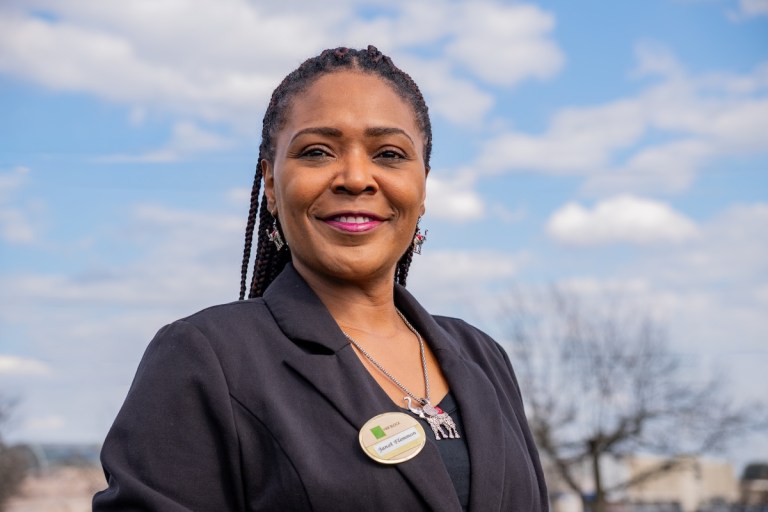Reviewed by: Elizabeth Hobbs
You can travel to Mexico, help the environment + more through this Auburn program
Reading time: 5 minutes
Sponsored

What do agriculture, Mexico, Auburn and the environment have in common?
An exciting program that allows students to travel, learn about all of the primary sciences and launch careers in integrating law, engineering, water quality, industry and more.. We chatted with Auburn professor Dr. Waters for all the details—keep reading to learn more.
All about Environmental Sciences
Meet Dr. Waters + learn why he loves Environmental Sciences

Recently, Dr. Waters attended his 20th high school reunion, where he watched a montage of interviews of his senior class during the week they graduated. They all had to answer the ultimate question—what they planned to do with their lives—and Dr. Waters said, “I want to be a college professor.”
He’s one of the few of us who’s actually doing what he said he would when he graduated from high school. However, his path to his becoming an Associate Professor of Paleolimnology and Environmental Science at Auburn definitely took some turns along the way.
Originally majoring in mathematics, Dr. Waters never realized his love for environmental science until he took a science course as a junior in college. From there, he changed his major and crammed all of his environmental science coursework into two years. He went on to get his master’s, teach at a high school for four years, procure his PhD and work at a few teaching colleges before landing his position at Auburn.
“I was hired at Auburn because the Environmental Science program had grown at such a fast rate that they needed someone who did environmental science but was not in agriculture. However, I come from an agricultural family, so I see the value in supporting agriculture while also being environmentally focused.”
Dr. Matt Waters, Associate Professor of Paleolimnology and Environmental Science
Hands-on learning opportunities + study abroad

Dr. Waters is a paleolimnologist—”paleo” meaning “old” and “limnology” meaning “fresh water” or “inland water.” Essentially, he studies the history of lakes and mud cores from the bottom of lake systems.
Through studying these mud cores, Dr. Waters can analyze how ecosystems looked 100, 500 or 5,000 years ago.
He currently does a lot of work in Mesoamerica, seeking answers to questions, such as, “Did ancient societies have water quality problems in the same way modern societies have water quality problems?”
Because of this work, he’s been featured in The National Geographic and various international magazines.
He also takes students on study abroad trips to Mérida, Mexico, where they study aquatic resources.
One of the perks of Dr. Water’s trip is that it cost approximately seven times less than Auburn’s other study abroad trips, creating travel experiences for students who would typically not have the opportunity.
A holistic education in the sciences

If you want to take theories beyond the classroom and get hands-on with scientific learning, Auburn’s Environmental Science program is right up your alley.
The program focuses on the primary sciences—such as biology, chemistry and geology—and applies them to real-world environmental situations.
“We are training scientists who can use data to fix problems.
Environmental problems are incredibly complex, involving politics, sociology and economics, and we are the scientific component of that conversation. We are training scientists to stand in that conversation and be a part of it.”
Dr. Matt Waters, Associate Professor of Paleolimnology and Environmental Science
Environmental Science students take classes from four different colleges on Auburn’s campus, making them versatile and prepared for a variety of careers. Students are also able to dedicate 21 hours of their degree to professional track electives, creating a focus area within their major.
Here are some example of career paths you can pursue with an Environmental Science degree:
- Environmental engineer
- Environmental health + safety officer
- Environmental lawyer
- Environmental scientist
- Geologist
- Meteorologist
- Water quality scientist
- Wildlife biologist
Apply for Auburn’s Environmental Sciences program today

According to Dr. Lawson—newest professor in the Environmental Science program—if you’re someone who is curious about the world around you, Environmental Science may be the right career path for you.
“People who are really curious and interested in the sciences do well in environmental science because it involves so many disciplines, like ecology, chemistry and more.
Here’s what I tell students who are on the fence about the program: we like to provide undergraduate research opportunities to help students figure out where to focus their studies and how to determine a potential career path. It’s exciting to be able to start out in a broad career field and then have the resources to position yourself to pursue your specific interest.”
Dr. Katelyn Lawson
Launch your career in Environmental Science in Auburn’s College of Agriculture.
Sponsored by:




